SUMMARY
This is AI generated summarization, which may have errors. For context, always refer to the full article.

LAS ROZAS, Spain – Spain’s women football players reiterated on Monday, September 18, that they would continue to boycott the national team, signaling a deepening of the crisis that started after the country’s then football federation (RFEF) boss Luis Rubiales kissed Jenni Hermoso on the lips during the World Cup presentation ceremony.
After most of the Women’s World Cup winners were selected for upcoming games, the players said in a joint statement they would take the “best decision” for their future and health after they would study the legal implications of being included in a squad list they had asked to be left out.
They argued the federation cannot require their presence because they alleged the call-up was not issued within the world’s soccer governing body FIFA parameters in terms of timings and procedure.
The revolt by the players was triggered after Rubiales kissed Hermoso on the lips following Spain’s World Cup victory. She disputed his insistence the kiss was consensual, sparking a national debate about macho culture in sport and eventually led to Rubiales’s resignation.
Hermoso was not on the squad list announced by new coach Montse Tome on Monday, which included 15 of the 23 World Cup-winning squad plus two players – Mapi Leon and Patri Guijarro – who were not called up for the finals after signing an open letter against then-coach Jorge Vilda.
“We regret once more that our federation puts us in a situation we had never desired,” said the statement which was issued on the name of Spain’s top women’s team players but did not include signatures and was not shared by all of them on social media.
Among the ones that shared it were some of the team’s most prominent players such as Alexia Putellas and Aitana Bonmati.
A source close to three players said they had been surprised by the call-up.
Should they refuse the call-up, the players could face sanctions including fines of up 30,000 euros ($32,000) and the suspension of their federation license for two to 15 years according to Spain’s Sports Act.
“If the players do not show up, the government must apply the law. I’m sorry to say so, but we must do what we have to do,” the head of Spain’s government national sports agency, Victor Francos, told SER radio station.
Earlier in the day Tome, who was Vilda’s assistant for five years, told a press conference none of the players had asked not to be selected, adding that she had spoken to them but declining to reveal what was discussed.
When asked if she was confident all those on the list would answer the call to play, she said: “I have every confidence in the players… I trust that the players are professionals.
“They come from being world champions, they love the profession and I know they will be here with us tomorrow.”
“It’s the start of a new phase, the clock is ticking,” she added.
Further changes
On Friday, a group of 39 players – including 21 out of the 23 in the World Cup-winning squad – said they wanted further changes at the football federation as Rubiales’s resignation and the replacement of coach Vilda were not enough for them to return.
On Monday night, they said their Friday statement “clearly shows and without room for any other interpretation our firm will of not being called-up over justified reasons.”
They added such position remains intact three days later and that they had not expressed any different view to RFEF officials since then.
Twenty out of the 39 were in the squad for matches against Sweden on Friday, and Switzerland next Tuesday in Spain’s debut in the UEFA Nations League, a competition that will determine which European teams qualify for the 2024 Paris Olympics.
An original group of 81 players had called the boycott in the wake of the furor over Rubiales’ kiss.
Tome suggested Hermoso was left out of the squad because of the intense media attention she had received in the past month.
“We stand with Jenni… we believe that the best way to protect her is like this, but we are counting on Jenni,” Tome said.
Earlier on Monday, the federation said in a statement it was convinced of the need for “structural changes” and had to clarify who was responsible for the behavior the players had brought to light.
Rubiales defamation lawsuit junked
In Madrid, a Spanish court has dismissed a lawsuit by disgraced ex-soccer federation chief Rubiales against coach Javier Clemente, who had called Rubiales a “dangerous and ambitious guy” seeking “to get rich,” qualifying his comments as free speech.
In its ruling seen by Reuters on Monday and dated September 1 – amid an unrelated scandal over Rubiales’ behavior at the Women’s World Cup last month – the Madrid court said that “we are dealing with a pure exercise of the right to freely express an opinion about a person who, moreover, is a public figure.”
The ruling can be appealed.
Rubiales declined to comment, and Clemente, who was Spain national men’s team coach during the 1990s, was not available for comment.
Rubiales sued Clemente in 2022 after the outspoken coach said in an interview that Rubiales’ “goal was to make a fortune” at the helm of the RFEF.
At the August 20 medal ceremony following Spain’s World Cup victory in Sydney, Rubiales grabbed player Jenni Hermoso’s head and kissed her on the lips, triggering a furore over sexism in Spanish sport and society.
After weeks of defying calls from players, politicians and women’s groups for him to step down, he finally resigned on September 10 as president of the RFEF and from his position as vice president of UEFA, shortly after Hermoso filed a criminal complaint against him for alleged sexual assault.
Clemente, a former player, led Athletic Bilbao to La Liga titles before spending six years as manager of Spain, taking them to the 1994 and 1998 World Cups. He also coached the Serbia, Cameroon and Libya national teams. – Rappler.com
Add a comment
How does this make you feel?
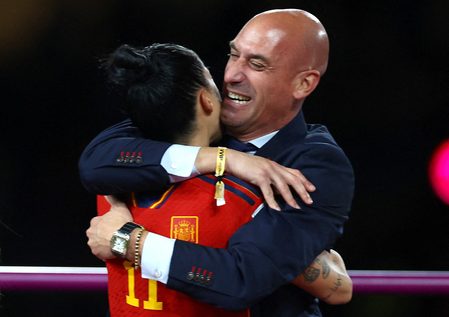





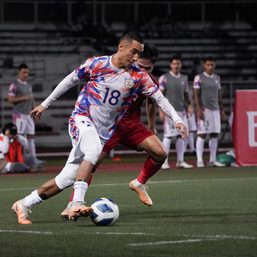
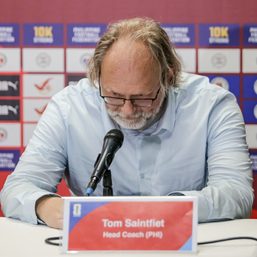

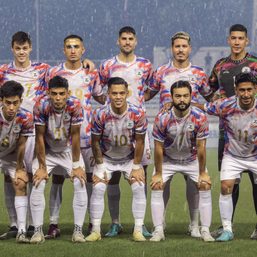
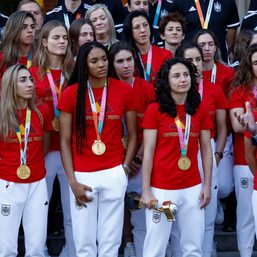




There are no comments yet. Add your comment to start the conversation.